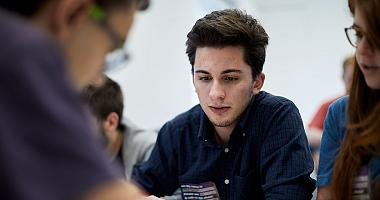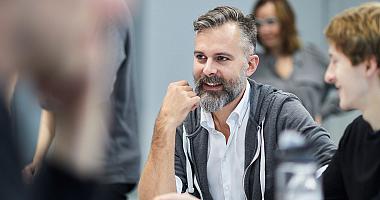Course information
Department
Length
1 year full-time; 2 years part-time
Course overview
This innovative programme will explore how people experience the world, particularly when using technology. You'll learn how each layer of technology, from core hardware through to the way that media is handled, can affect user experience and gain the skills for researching user requirements and designing the best solutions.
A user’s experience of technology depends on the design and engineering choices that influence their interactions. Emerging and future technologies will exceed the capabilities available today, so our experts will give you the research skills needed to exploit and design new possibilities for the benefit of users that are fit for the relevant market.
The importance of human-computer interaction and good interface design is increasingly recognised as the key to the future of successful tech development. User-centric software and hardware continue to evolve and are becoming more important in product design as technological breakthroughs drive innovation. The ability to select and implement the appropriate technologies to deliver usable and satisfying solutions will address a current skill shortage and will equip students with in-demand vocational skills.
Why study MSc User Experience Engineering
- This specialist masters degree provides more focused employment possibilities than a more general computing programme
- This degree consolidates a variety of topics that may be available as short professional courses but provides a clear framework within which to use the UX skills and knowledge while providing sufficient time to think deeply about the underlying UX principles
- You'll learn to design and produce computing-based systems and solutions that have been validated to meet the functional requirements of users, be accessible and inclusive, and provide users with a satisfying user experience
- A variety of optional modules in advanced technologies and psychology means you can choose a path that emphasises the career of your choice
- You will have access to the specialist UX lab with a variety of user measurement tools such as eye-gaze tracking, muscle movement and brain activity
- The vocational nature of the programme gives you the option to complete a field study thesis project as an alternative to the conventional academic thesis
- Through presentation and demonstration of your work, we'll prepare you to enter a field of work characterised by the agile approach and team working within multi-disciplinary cohorts
- You'll benefit from the expertise of the Department of Computing, as well as drawing on the knowledge of staff in the Department of Psychology and the Institute of Management Studies (IMS)
- Guest Lectures and Field Project modules will introduce you to the professional aspects of working as a UX designer, researcher or engineer and hearing from industry professionals will give you an insight into what it's like to work in the field
Contact the department
If you have specific questions about the degree, contact Nicolas Hine.





